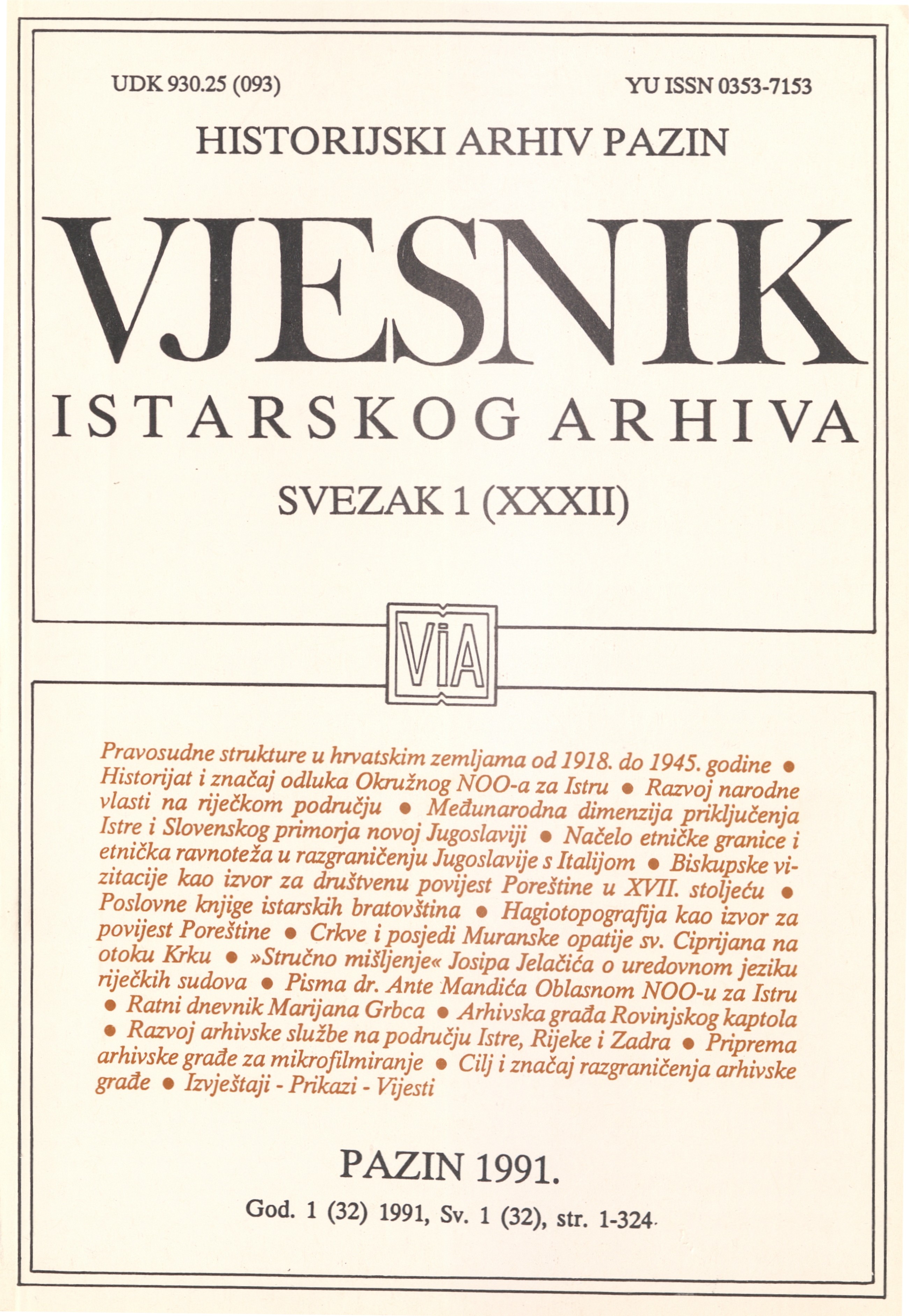Judiciary in Croatia from 1918 to 1945
Abstract
In this work the author deals with the history of the judicial bodies in Croatia in the period 1918-1945 with a preceding outline of the situation before FWW. He describes their organization, the extent and scope of their authority, their areas of administration, their seats, their lifetimes, and the laws governing their work and on the basis of which they were set up or abolished. The author also discusses the way in which the judges were appointed, the rights and powers vested in their offices. A few examples are given on some specific offences handled by courts (illustrating, among other things, what was considered a criminal offence under the Public Order and Security Law of August 2, 1921, administered by the State Protection Court). The author also describes the main features of court proceedings in respective periods of time, the principles governing the work of courts and whether or to which extent these principles were impeded by state authorities, including the motives behind calling emergency and other special types of court trials, which all enables the reader to draw his own conclusions as to the citizens’ slatus in terms of legal security. The introductory part of the work reviews the courts in Croatia and Slavonia in the second half of the 19th century. Dalmatia, Istria and the city of Rijeka are also covered. This is followed by an account of the judiciary in Yugoslavia between the two world wars. The topics include: the basic principles of organization and operation of courts (involving the principles of independence, tenure of judges, observance of laws, accessibility to public control, etc); regular (regional, district, commercial, appelate) courts, the Tribunal of Seven and the (special) State Protection Court. Also described is the judicial structure within NDII (the Independent State of Croatia during the SWW) where in addition to regular courts and the Tribunal of Seven as supreme court existed extraordinary courts and court-martials including Tribunale straordinario della Dalmazia and Tribunale speciale della Dalmazia in Dalmatia annexed by Italy. The third part of the work deals with the civil courts in the areas of Croatia liberated during the 1941-1945 occupation period as they developed in stages, from that of collective participation and court proceedings within NOOs (National Liberation Committees) through setting up of municipal, regional and destrict courts within NOOs and the Court of ZAVNOH (Anti-Fascist Council for National Liberation of Croatia) founded in November 1944 to regular regional and local courts and the Supreme Courts of Croatia and Yugoslavia (1945).
Downloads
Published
Issue
Section
License

This work is licensed under a Creative Commons Attribution-NonCommercial 4.0 International License.

